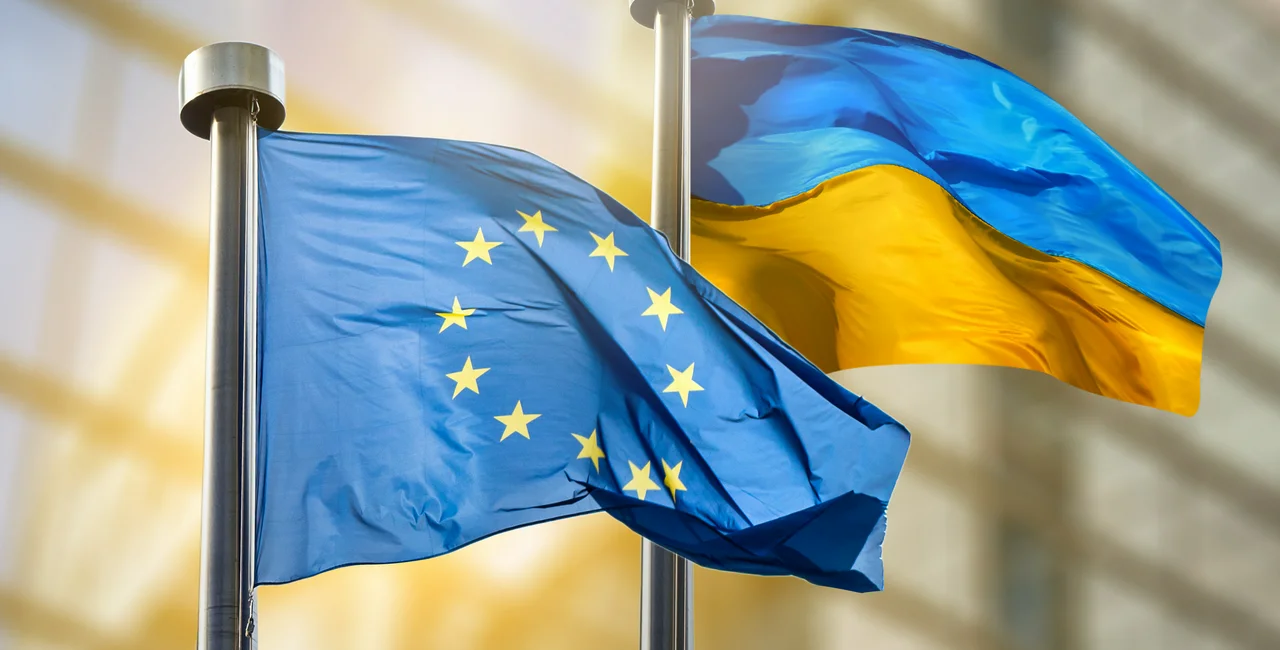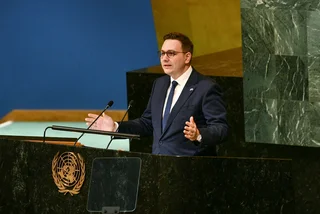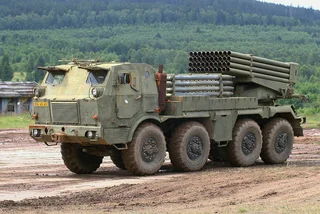The process of Ukraine's accession to the EU could start this year, if all EU member states agree with the move, Czech Foreign Minister Jan Lipavský said on Prima TV yesterday. Lipavský's comments were in reaction to President Petr Pavel's vow to push for Kyiv's accession talks to be opened by the end of this year.
Pavel previously said he would be pushing for this outcome, which Kyiv also seeks, in line with the position of Czech diplomacy.
"I can imagine it, but there must be consensus in the entire EU-27," Lipavský said.
However, many EU member states are skeptical about it and Czechia is trying to allay their fears. Ukraine would have to meet all the conditions and "cannot enjoy any reliefs" in this respect, Lipavský said.
During the televised debate on Sunday, Jiří Kobza, a former diplomat and parliament member from the junior opposition Freedom and Direct Democracy (SPD) movement, reiterated that Ukraine should not become a member of the EU. He justified this by, among other things, that Ukrainian society has converted to an oligarchy, with a level of corruption.
If Ukraine does become a member of the Union, it will be within a decade, Kobza said. According to Lipavský, this period will be much shorter, although Ukraine will not see any relief granted to it within the accession process.
Ukraine was granted candidate status for EU membership in 2022. It received seven recommendations from Brussels last year to bring it closer to membership in the bloc.
President of the European Commission Ursula von der Leyen said in January that Ukraine had made good progress in implementing those recommendations, which concern domestic politics and the judiciary, such as the fight against corruption and the procedure for approving judges of the Ukrainian Constitutional Court.
Lipavský and Kobza agreed that only diplomacy can end Russia's war against Ukraine. But while Lipavský made a settlement conditional on restoring Ukraine's territorial integrity, Kobza was also in favor of a "bad peace," which means stopping the fighting without territorial conditions. The mediator could be China in the interests of its trade, Kobza suggested.
Czech Foreign Minister Jan Lipavský will visit the U.S. from May 2-5, 2023. He will meet with US Secretary of State Antony Blinken to discuss bilateral relations, security cooperation, support for Ukraine, energy security, and cooperation in the Indo-Pacific region. He will also attend the eleventh year of the Strategic Dialogue between the foreign ministries of the Czech Republic and the USA, speak at the Hudson Institute, visit NASA headquarters to confirm Czech accession to the Artemis Agreement, and meet with Republican representatives in Congress.
According to Lipavský, the EU and U.S. anti-Russian sanctions discourage a greater rapprochement with the regime of Russian President Vladimir Putin. Kobza said he believed that China's economy was strengthening thanks to the anti-Russian sanctions.
Lipavský also said he would look into the information that Czech goods were available in Russian shops despite the sanctions. This may be due to re-exports from other post-Soviet countries, he said.












 Reading time: 2 minutes
Reading time: 2 minutes 





























